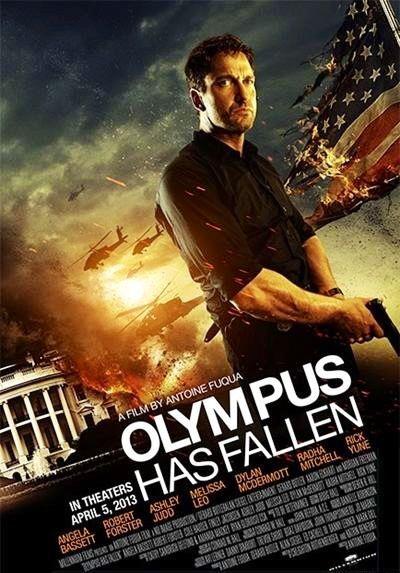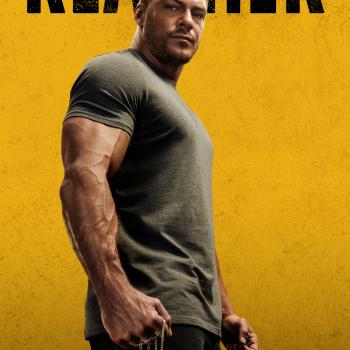Review of Olympus Has Fallen, Directed by Antoine Fuqua
Fortunately, the title of this review pretty much provides the summary of the movie [spoiler alerts from here on]. “Terrorists” have taken over the White House and are making insane demands while working on their own secret agenda. The entire government apparatus repeatedly fails to take control of the situation (despite being much more competent than the counterpart “FBI guys” of Die Hard). The only hope of the hostages—including the President of the United States—is the fly in the ointment, the monkey in the wrench, the cowboy John McClane Mike Banning. Will Banning be able to take the White House back and rescue the hostages? Will he break every rule in doing so, or just most of them? And will his past mistakes be wiped away by his present efforts to save the world?
(I should note that the plot is pretty much the only parallel with Die Hard. Where that 80s masterpiece had plenty of humor and fun, this one is grisly, bloody, and grim. So if the prospect of lots of blood, body parts, and all the other biological bric-a-brac associated with shoot-em-ups bothers you, I recommend finding a different movie to see.)
Despite in many ways being just another film in a long line of cheesy action movies, there is quite a bit here for the Christian to chew on. Here are a handful of samples (normally, I’d worry about stealing some other blogger’s thunder with such a list, but I get the feeling that I’ll be the only Schaeffer’s Ghost-er reviewing this particular movie):
- Evil fundamentally cares more about destroying good things than getting the benefits of good for itself. (That is, bad people would rather good people have nothing than prosper themselves.)
- Political and military power are plagued with a blind arrogance that refuses to acknowledge their own weaknesses and limitations.
- We all need some means of atoning for past mistakes.
That last point would of course be the easy way out for a Christian blogger to reflect on a movie—present effort can never wipe out previous sin (as Olympus has Fallen keeps reminding us). Only a perfect atoning sacrifice can do so.
Yet, I’m going to pass over these and focus instead on what I regularly find to be the most disturbing aspect of the film—and keep in mind that I regularly and even somewhat gleefully imbibe horror and action movies: the destruction of Washington, DC. This kind of thing—as with other related movies—always makes me uncomfortable in a way that zombie hordes and piles of dead Nazis do not. I don’t like the idea of America as a battlefield rather than a land of peace and plenty.
And here, of course, to some extent I reveal my own sin. I am far more attached to the blessings of living in America than to the blessings offered in the Gospel. I assume that the standard of human existence should be a nation that is safe, free, and full of food and shelter for everyone. I assume instinctively that such things will always be that way here, and will increasingly be available around the world for those who will try their hardest to live like we do. And I assume that these blessings cannot be taken away, because we have a powerful military, a (somewhat) competent government, and a productive economy.
Yet, the Bible specifically condemns resting in our own strength—even our own national strength—as the source of our hope.
No king is saved by the size of his army,
No warrior escapes by his great strength.
A horse is a vain hope for deliverance;
Despite all its great strength it cannot save. (Psalm 33:16-17)
The fact that we have replaced “horse” with “thermonuclear warhead” does not make our reliance any less misguided or in any way make us more secure. If we place our confidence in the continued enjoyment of full stomachs, peaceful streets, and the safety provided by the U.S. Military, then we have built on a crumbling foundation.
Fortunately, the Bible offers hope here as well. Where the nations of the world are temporary and fleeting, the city of God is built on the foundation of the cross and entered by faith. There is much that could be added at this point, but rather than going into the details let me suggest that you take some time and read Augustine’s City of God. And when I say “some time,” I mean “roughly a year”, since it’s 1200 pages long—though I can promise it will be a worthwhile year!
To sum up: this movie is a good one, if you can handle the violence. It will provide both entertainment and fodder for reflection.
Dr. Coyle Neal teaches political philosophy and church history in Washington, DC.












